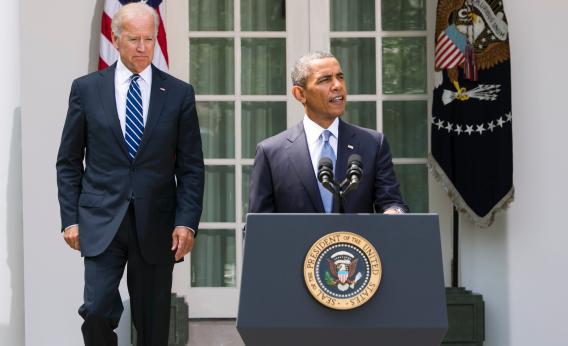Imagine for a moment that when President Obama spoke from the Rose Garden on Aug. 31, rather than announcing that he was seeking congressional authorization, he had done what everyone was expecting he would do and announced an imminent strike against the Syrian regime prompted by its use of chemical weapons. This would have been followed by one or two days of cruise missile strikes against Syrian military targets. If it had really been the kind of “unbelievably small” operation the administration is now describing, the whole thing might have been over by the end of Labor Day weekend.
What would have happened next? Well, it’s impossible to know for sure, but assuming the U.S. managed not to destroy a medicine factory or another country’s embassy (unfortunately not something that can be completely ruled out based on past experience) the political fallout would likely have been minimal.
As with all such operations, there was a possibility of civilian casualties, and the Syrian government would have seized on them to score propaganda points. But Assad’s appeals to international sympathy would ring pretty hollow given the carnage he’s inflicted on his own people for two years.
Militarily, the strikes wouldn’t have done much to degrade the Syrian government’s forces, but Obama, along with French President Francois Hollande, would claim that an important point had been made and the longstanding prohibition of chemical weapons had been upheld. The Syrian opposition and hawks in the United States would have grumbled that the action wasn’t enough. Anti-war members of Congress from both the right and left would have put out strong statements accusing the president of overstepping his constitutional authority. Vladimir Putin would have accused the United States of violating international law and Obama’s reception in St. Petersburg would have been even chillier.
Assuming, as would almost certainly be the case, that no Americans were killed in the operation, U.S. public opinion would have been largely indifferent once the attack had actually taken place. The media’s attention would have largely shifted back to domestic matters within a few days.
In other words, if we take Obama at his word that he felt military action was necessary to punish Assad’s use of chemical weapons and uphold an international norm, there was little reason not to do so shortly after the White House initially suggested it.
The conventional wisdom after Obama went to Congress was that it was a risky but shrewd political move, forcing the GOP to share the burden of either action or non-action. But I’m not really sure the burden would have been the great.
Now, while the Russian suggestion may have given the administration something of an out to avoid the humiliation of losing a vote in Congress, Obama doesn’t really appear to be in control of the situation as we head into what looks likely to be several weeks into what he himself called the “usual hocus-pocus” of U.N. resolutions and international posturing.
Politically, the downside of acting last labor day would probably have been less than the current confused situation. Given the tepid support in Congress and downright hostile public opinion polls, that probably could have been anticipated.
All of which makes it seem like at some point in the days before Aug. 31, the president actually changed his mind, decided he didn’t want to launch military action, and began looking for a way out.
